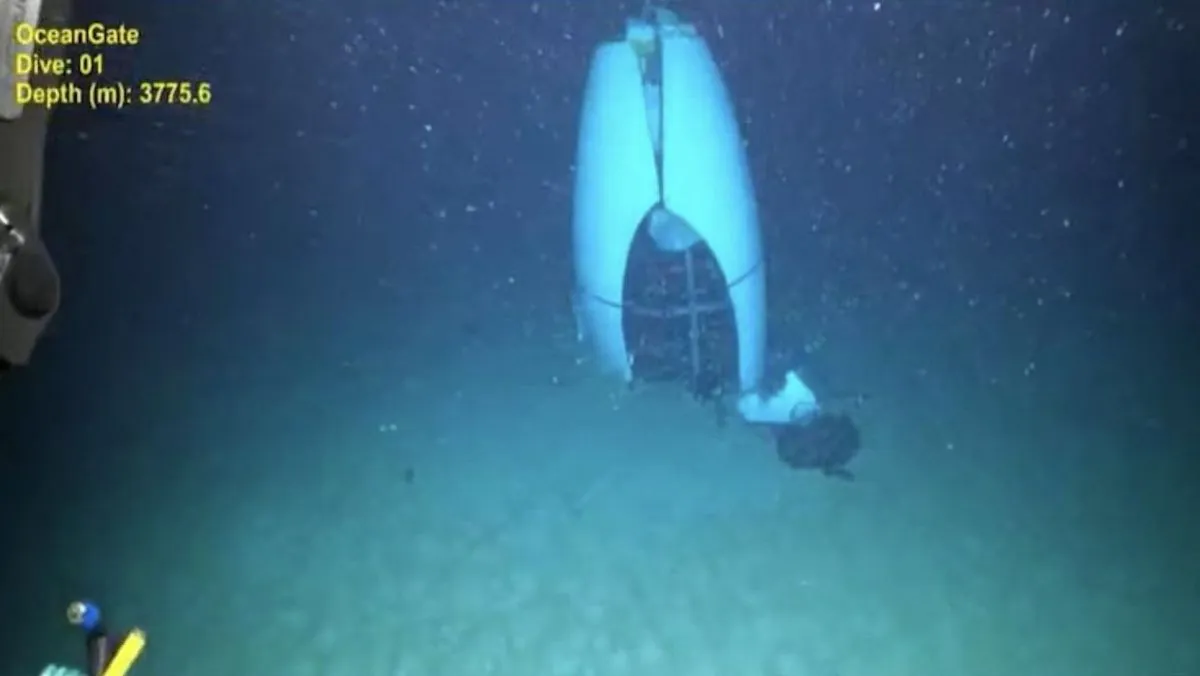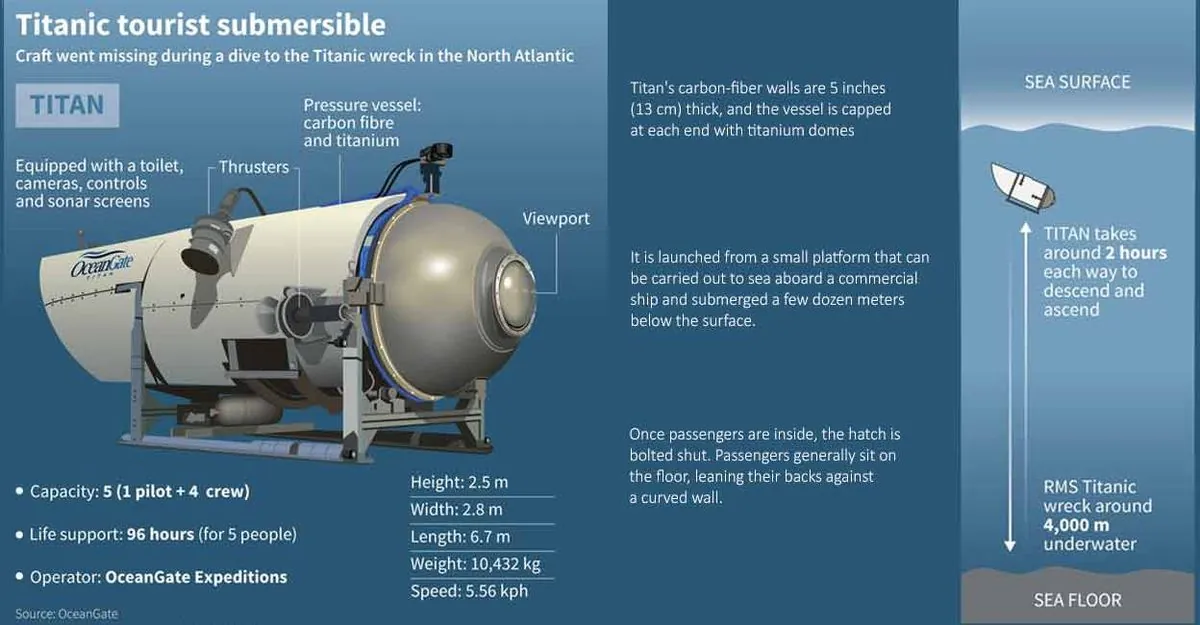Coast Guard Hearing Probes OceanGate's Titan Submersible Tragedy
A U.S. Coast Guard hearing investigates the 2023 Titan submersible implosion. Former OceanGate employees testify about safety concerns and profit-driven operations, shedding light on the tragic incident.

The U.S. Coast Guard continues its investigation into the tragic implosion of the Titan submersible, which occurred 15 months ago in June 2023. Renata Rojas, a mission specialist for OceanGate, the company that owned the ill-fated vessel, is set to provide testimony today.
This hearing, which began on September 16, 2024, has already revealed concerning details about OceanGate's operations. Former employees have painted a picture of a company prioritizing profit over safety in its quest to explore the Titanic wreckage.
David Lochridge, OceanGate's former operations director, testified about frequent disagreements with company co-founder Stockton Rush. Lochridge stated, "The whole idea behind the company was to make money. There was very little in the way of science."

The Titan submersible's unconventional design and lack of independent review have come under scrutiny. This raises questions about the safety standards in deep-sea tourism, an industry that has grown significantly in recent years. The Titanic wreck, lying at a depth of about 12,500 feet, presents extreme challenges for exploration. At this depth, the pressure reaches approximately 6,000 pounds per square inch, capable of causing an implosion in less than a millisecond.
The final dive of the Titan on June 18, 2023, ended in tragedy when the submersible lost contact with its support ship, the Polar Prince. One of the last messages from the crew stated, "all good here," before the vessel imploded. The wreckage was found about 330 yards from the Titanic's bow, in an area spanning 15 square miles on the ocean floor.
"The whole idea behind the company was to make money. There was very little in the way of science."
This incident has sparked a global debate on the future of private undersea exploration. It highlights the need for stringent safety measures and independent reviews, as typically required by organizations like the International Maritime Organization.
The Coast Guard hearing, expected to conclude tomorrow, will hear from more witnesses, including Steven Ross, OceanGate's former scientific director. As the investigation continues, it serves as a stark reminder of the risks associated with deep-sea exploration and the importance of prioritizing safety over commercial interests.
OceanGate, which began its Titanic expeditions in 2021, has suspended operations since the incident. While the company currently has no full-time employees, it is being represented by legal counsel during the hearing. The outcome of this investigation may have far-reaching implications for the future of deep-sea tourism and exploration.


































